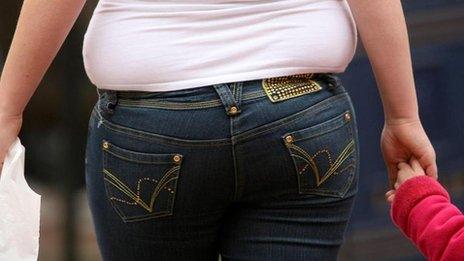Food addiction: could overeating be compulsive?
- Published
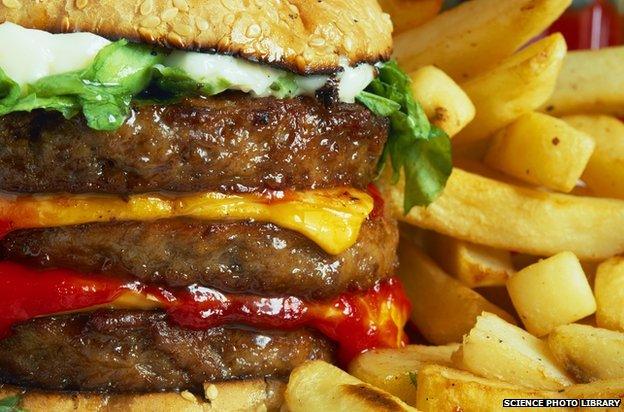
Scientists are divided over whether or not addiction could be contributing to rising global obesity. Does food addiction really exist and - if it does - how can it be treated?
Getting a grip on addiction can be incredibly hard, as anyone who has ever tried to give up smoking, alcohol or even caffeine will testify.
A tried and tested tactic is to avoid the thing you're addicted to - giving up going to pubs for a while, or not to have cigarettes in the house.
Even with these measures people often struggle and fail repeatedly.
But what if the thing you are addicted to has to be kept in the house, and worse, has to be something you sit down in front of three times a day?
As obesity levels continue to rise, the scientific community is starting to look for similarities between overeating and addiction.
The EU has funded a project called NeuroFAST to bring all the evidence together.
Researchers are cautious. So far there is only one type of eating disorder where it is thought addiction plays a role: Binge Eating Disorder, a side effect of which is often obesity.
Although we tend to trivialise the idea of addiction and food being related - many of us have at some point referred to ourselves as addicted to chocolate - Binge Eating Disorder is something which holds people within its grip.
It causes physical and psychological harm and is utterly miserable. Just like other forms of addiction.
One of the people I spoke to as part of my research, Michael, is an articulate, educated professional and a former overeater.
He said: "It's difficult for others to understand. Everyone overeats and they think it's just a bigger version of that.
"It's a completely different experience - a constant, daily minute-to-minute obsession about getting the substance, food.
"It is hell being there in that place."
Louise, another of those I met, provides a compelling testimony for addiction being at work in overeating.
She also had a serious alcohol problem and understands addiction more than most.
"I think what's most interesting is the similarities in behaviour," she says.
"As an alcoholic I would go to different off-licences to buy my alcohol so people wouldn't recognise me, but I'd also go to different newsagents to buy chocolate so they wouldn't recognise me.
"Sneaking it into the house, not wanting people to see, hiding food, like an alcoholic hiding bottles, hiding empties."
Dr Nora Volkow, a prominent neuroscientist and head of the National Institute on Drug Abuse in the United States, is clear in her mind that there are biological processes underpinning what Michael and Louise describe.
She has found that a neurotransmitter called dopamine, which is known to be involved in addiction, behaves in the brain in the same way in those who are heavily addicted to drugs and those who are obese.
For her this is strong evidence that food, or eating, can be addictive.
Not everybody agrees. Professor Jane Ogden, a psychologist at the University of Surrey, believes the label of addiction can be unhelpful for those who overeat - it removes personal responsibility and hinders recovery.

The number of obese people in the UK has more than trebled in 25 years
"The addiction world has given us a strong narrative that says you have no control - things in your brain are wanting more sugar or chocolate" she says.
But if food is like other addictions, we should theoretically see overlaps in successful treatments.
Addiction treatment has a goal of either complete abstinence or reducing harm - for example by prescribing methadone or nicotine gum.
For those working towards abstinence, one tried and tested model is the 12-step programme developed by Alcoholics Anonymous, with versions for drugs used by Narcotics Anonymous and gambling by Gamblers Anonymous.
Michael and Louise are both members of Overeaters Anonymous. It works in much the same way as the other 12-step programmes with peer-led group confidential meetings, personal mentors, and a structured programme of steps to work through.
There is no doubt that for some it's highly successful, just like Alcoholics Anonymous can be.
It's not possible to abstain from eating, of course, but it is possible to abstain from overeating.
For Louise, abstinence is three healthy meals a day, no wheat and no chocolate. For Michael his abstinence food plan is determined by his sponsor - he is told by someone else what he is allowed to eat.
Other treatments are more radical.
In alcohol addiction, the body can be altered so that it rejects alcohol by implanting a drug known as antabuse.
If alcohol is consumed, the body reacts with nausea.
Similarly in overeating, the body can be altered by bariatric surgery - a gastric band, bypass or sleeve, which restricts the volume of the stomach available for food.
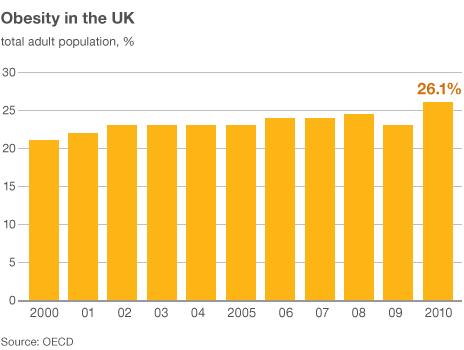
It sounds extreme but it works for most people, and the evidence shows the risks of surgery are far outweighed by the health benefits of losing excess weight.
People live longer, and have fewer heart and mobility problems. Diabetes is even reversed in some cases, and people report a massively improved quality of life.
The possible relationships between food and addiction are incredibly complicated, and there is a lot we do not yet understand.
Twenty years ago people were reluctant to accept that gambling could be addictive, but now there is widespread acceptance of this idea, and good evidence to support it.
Are we at the same place with food - waiting for the evidence and attitudes to change?
Nicola Schlesinger, a counsellor, works with women who have addiction problems and eating disorders. What would she say to those scientists who do not believe food can be addictive?
"They don't necessarily have the people sitting in front of them that I have on a daily basis in tears, in pain, hating themselves, feeling suicidal," she says.
"They can say what they like but in the end we still have to deal with the reality of the situation as it presents itself."
Hopefully NeuroFAST and others will move us closer to narrowing the gap between scientists on both sides of the debate, and find solutions for people who do feel a compulsion to overeat.
Listen to Constant Cravings: Does Food Addiction Exist? on BBC Radio 4 at 20:00 BST on Tuesday April 30 and afterwards on the BBC iPlayer.
- Published17 March 2013
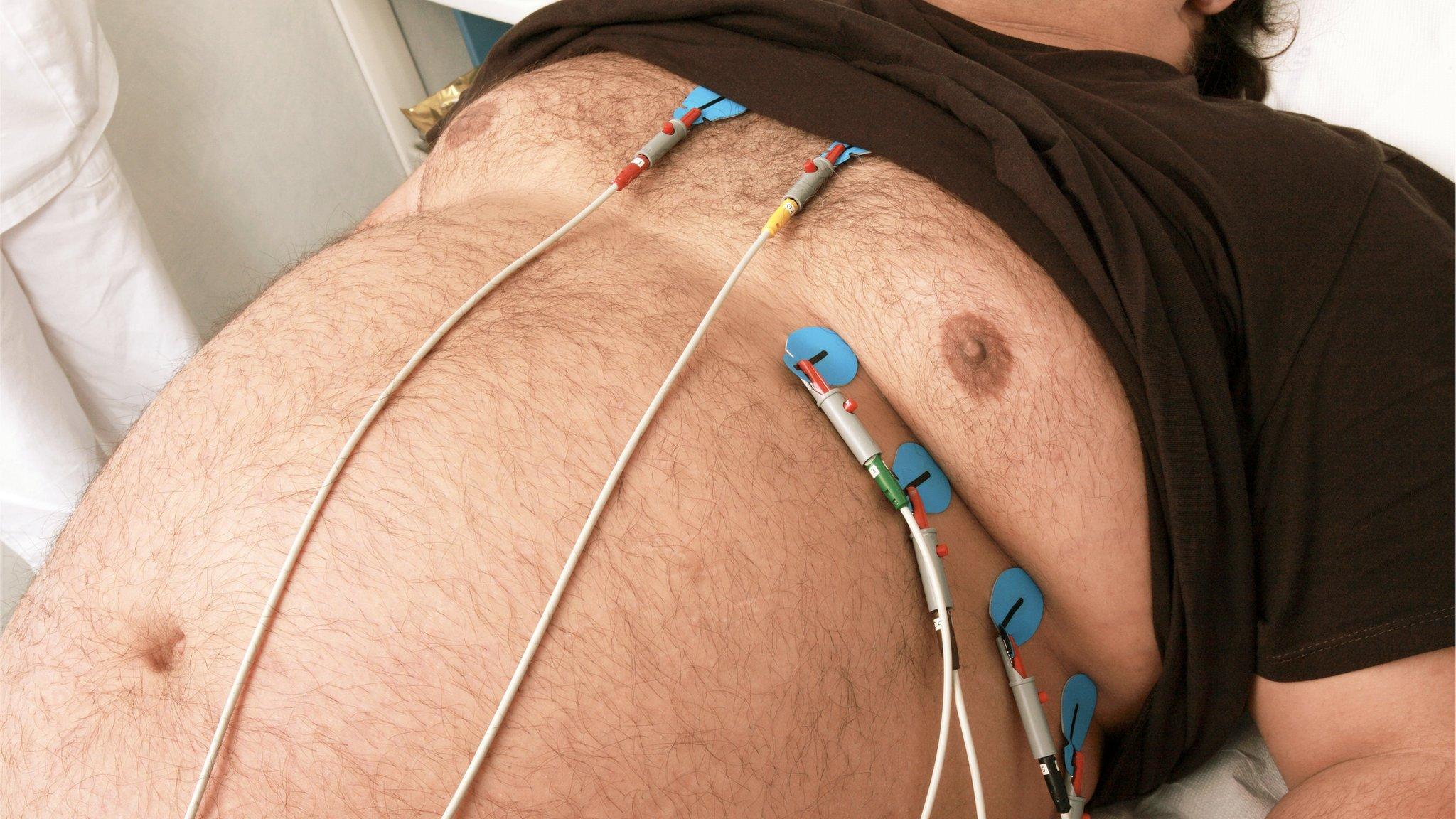
- Published29 January 2013
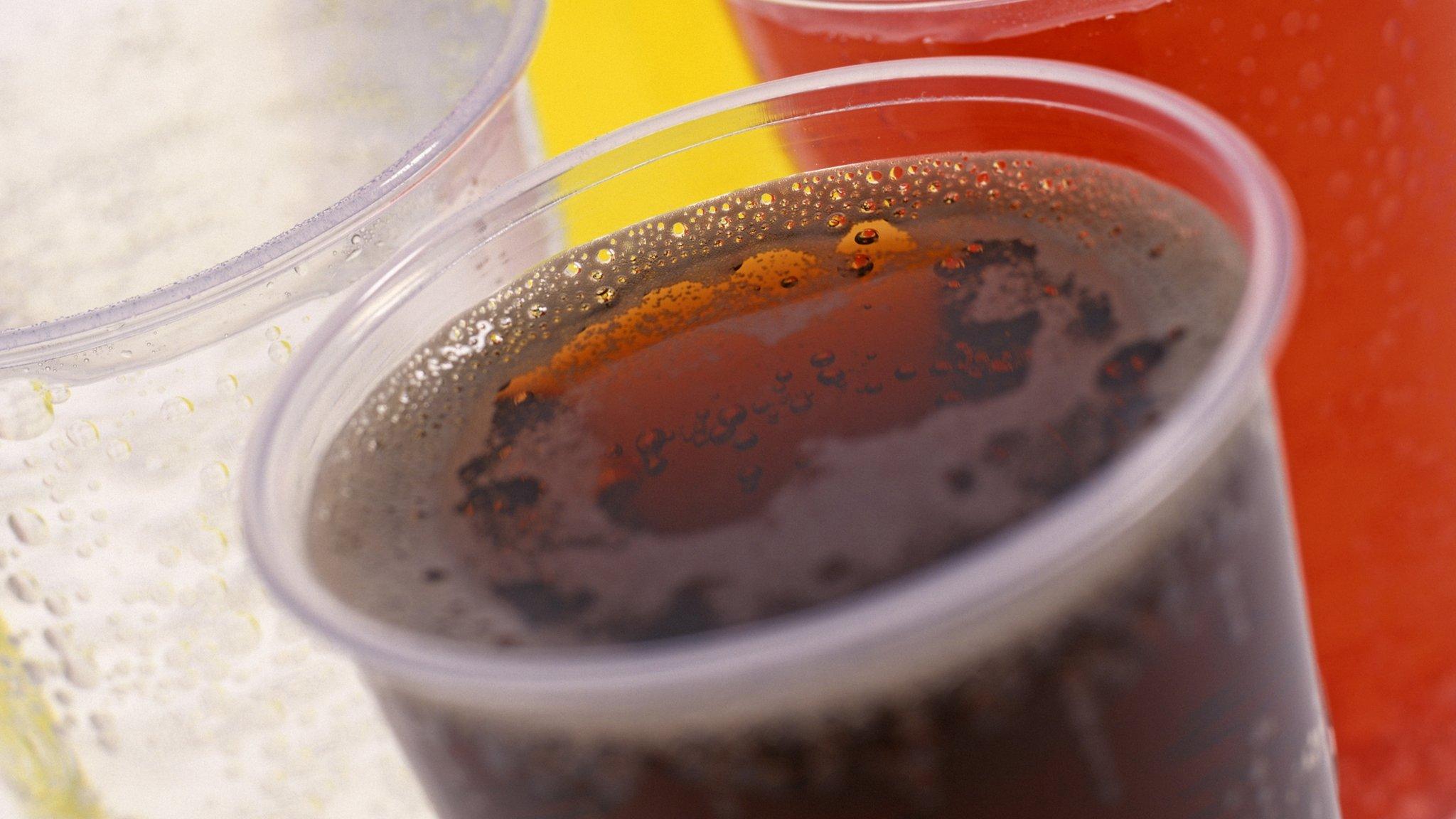
- Published16 April 2012
